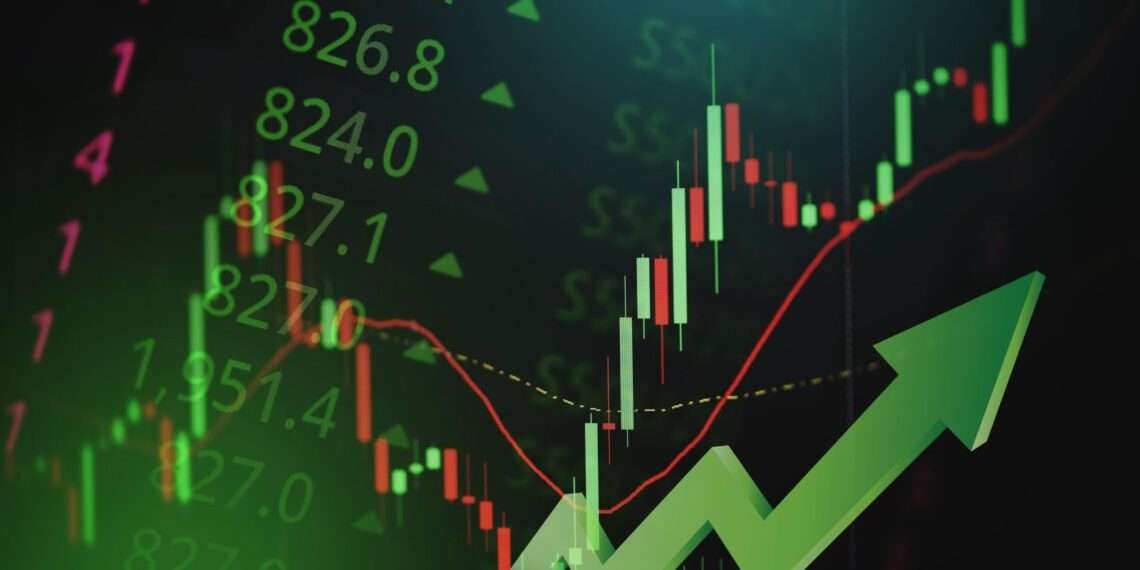The Ghana Stock Exchange (GSE) wrapped up its final trading day of the week with marginal gains across its key indices, defying a sharp drop in trading volume and turnover.
The benchmark GSE Composite Index (GSE-CI) recorded a modest increase of 17.67 points, or 0.29%, to close at 6,210.28. This marks a 1-week gain of 0.59%, and despite recent fluctuations, the index boasts a strong year-to-date (YTD) performance of 27.04%.
Similarly, the GSE Financial Stocks Index (GSE-FSI) advanced by 0.3% to reach 3,323.44 points. The financial index continues to outperform the broader market, recording a 1-week gain of 1.09%, a 4-week gain of 4.68%, and an impressive YTD return of 39.59%. These figures underscore the resilience of Ghana’s financial sector in the face of wider macroeconomic challenges.
Despite the muted trading activity, investor confidence in listed equities appeared intact, with the total market capitalization of the Ghana Stock Exchange remaining stable at GHS 136.7 billion. The figures reflect ongoing investor interest and suggest that the market may be consolidating ahead of a potential breakout or correction, depending on economic indicators and company earnings reports in the coming months.
Volume and Turnover Fall Sharply
While the indices painted a picture of growth, trading activity told a different story. On the final trading day of the week, a total of 306,660 shares were exchanged, generating a market value of GHS 5,873,825.92. This represents a significant 80% decline in trading volume and a 23% drop in turnover compared to the previous trading day on Thursday, June 19.
Market analysts view this drop in activity as a typical end-of-week lull, especially given the ongoing uncertainties surrounding global interest rates, local economic policy direction, and inflationary pressures. The dip could also reflect a temporary wait-and-see approach by institutional investors and fund managers.
Among the 17 equities that participated in Friday’s trading session, three stocks posted gains while one lost value. Standard Chartered Bank Ghana emerged as the top gainer, appreciating by 2.78% to close at GHS 27.00 per share. This performance is indicative of renewed investor confidence in the bank, possibly driven by improved financial performance or dividend prospects.
Other notable gainers included NewGold ETF, which rose by 0.36%, and telecom giant MTN Ghana, which edged up 0.34%. Their gains helped cushion the overall market against the sharp decline in trading activity.
On the downside, CalBank was the only loser for the day, shedding 1.82% of its value to close lower. While the reason for the dip wasn’t immediately clear, the decline may reflect investor profit-taking or concerns related to sectoral performance in the banking space.
SIC Insurance Company recorded the highest volume of traded shares, with 136,680 shares changing hands. This was followed by MTN Ghana (93,083), CalBank (35,090), and NewGold ETF (13,948). The activity in SIC shares suggests heightened interest in the insurance sector, which may be buoyed by recent positive financial disclosures or a surge in institutional demand.
Outlook: Investors Eye Fundamentals for Market Direction
Despite the sharp drop in volume and turnover, the uptick in both the GSE-CI and GSE-FSI suggests that investors remain cautiously optimistic about the local equity market. The continued YTD growth in both indices—especially the near 40% gain by the financial stocks—could attract more attention from domestic and foreign institutional investors looking for stable returns.
However, trading in the coming weeks is likely to be influenced by macroeconomic data releases, second-quarter earnings reports, and broader investor sentiment shaped by global market developments. With the mid-year budget review also around the corner, market participants will be watching closely for signals that could affect corporate profitability, interest rates, and sectoral performance.
While the GSE ended the week on a high note with positive index movement, the sharp contraction in trading activity is a reminder of the cautious sentiment prevailing among market participants.
READ ALSO: ECOWAS Council Charts Path Toward Regional Resilience























